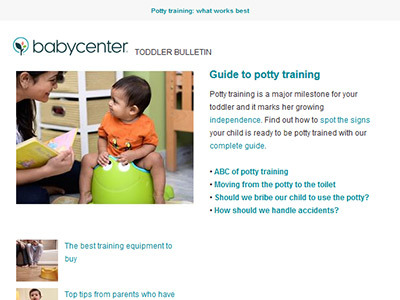Can my baby’s movements predict the sex?
No, there's no evidence that your baby's movements can predict whether you're having a boy or a girl.
There are all sorts of myths and old wives' tales about whether you can predict your baby's gender. You've probably heard people say that if your baby isn't very active in the womb (uterus), then you're likely to be having a girl. Or that if you feel your baby moving around earlier, then you're probably having a boy.
Many things can affect how active your baby is and how much movement you feel. These include:
If this is your second pregnancy, then your baby's movements may feel quite different from your first. You may notice those fluttering sensations earlier than you did in your first pregnancy. It's tempting to think this means that your new baby must be the opposite sex to your firstborn!
Bear in mind that the sex of your baby is determined by which sperm from your husband fertilises your egg. If a sperm carrying the male chromosome fertilises your egg, you will have a boy. If a sperm carrying the female chromosome fertilises your egg, you will have a baby girl.
It is quite natural for you to want to know your baby's gender. However, sex determination during pregnancy is illegal in India because sadly, too many parents have terminated a pregnancy if the baby wasn't the desired gender.
If you can't resist playing the guessing game, why not try our Chinese gender predictor for fun!
Reviewed by Dr Deepti Gupta, BabyCenter India's expert obstetrician and gynaecologist.
यह लेख हिंदी में पढ़ें!
Read more on:
Hijazi ZR, East CE. 2009. Factors affecting maternal perception of fetal movement. Obstet Gynecol Surv 64(7):489-97
NHS. 2015. Can I find out the sex of my baby? NHS Choices.
Robles de Medina PG, Visser GH, Huizink AC, et al. 2003. Fetal behaviour does not differ between boys and girls. Early Hum Dev 73:17–26
de Vries JI, Visser GH, Prechtl HF. 1988. The emergence of fetal behaviour. III. Individual differences and consistencies. Early Hum Dev 16(1):85-103
There are all sorts of myths and old wives' tales about whether you can predict your baby's gender. You've probably heard people say that if your baby isn't very active in the womb (uterus), then you're likely to be having a girl. Or that if you feel your baby moving around earlier, then you're probably having a boy.
Many things can affect how active your baby is and how much movement you feel. These include:
- whether you're overweight
- how busy and active you are
- whether you're standing up or lying down
- when you last ate
If this is your second pregnancy, then your baby's movements may feel quite different from your first. You may notice those fluttering sensations earlier than you did in your first pregnancy. It's tempting to think this means that your new baby must be the opposite sex to your firstborn!
Bear in mind that the sex of your baby is determined by which sperm from your husband fertilises your egg. If a sperm carrying the male chromosome fertilises your egg, you will have a boy. If a sperm carrying the female chromosome fertilises your egg, you will have a baby girl.
It is quite natural for you to want to know your baby's gender. However, sex determination during pregnancy is illegal in India because sadly, too many parents have terminated a pregnancy if the baby wasn't the desired gender.
If you can't resist playing the guessing game, why not try our Chinese gender predictor for fun!
Reviewed by Dr Deepti Gupta, BabyCenter India's expert obstetrician and gynaecologist.
यह लेख हिंदी में पढ़ें!
Read more on:
- Is there a reliable way to tell if I'm having a boy or a girl?
- How should I handle pressure to give birth to a boy?
- Baby names that work for boys and girls
References
Almli CR, Ball RH, Wheeler ME. 2001. Human fetal and neonatal movement patterns: Gender differences and fetal-to-neonatal continuity. Dev Psychobiol 38(4):252-73Hijazi ZR, East CE. 2009. Factors affecting maternal perception of fetal movement. Obstet Gynecol Surv 64(7):489-97
NHS. 2015. Can I find out the sex of my baby? NHS Choices.
Robles de Medina PG, Visser GH, Huizink AC, et al. 2003. Fetal behaviour does not differ between boys and girls. Early Hum Dev 73:17–26
de Vries JI, Visser GH, Prechtl HF. 1988. The emergence of fetal behaviour. III. Individual differences and consistencies. Early Hum Dev 16(1):85-103
Track your baby’s development

Join now to receive free weekly newsletters tracking your baby’s development and yours throughout your pregnancy.








